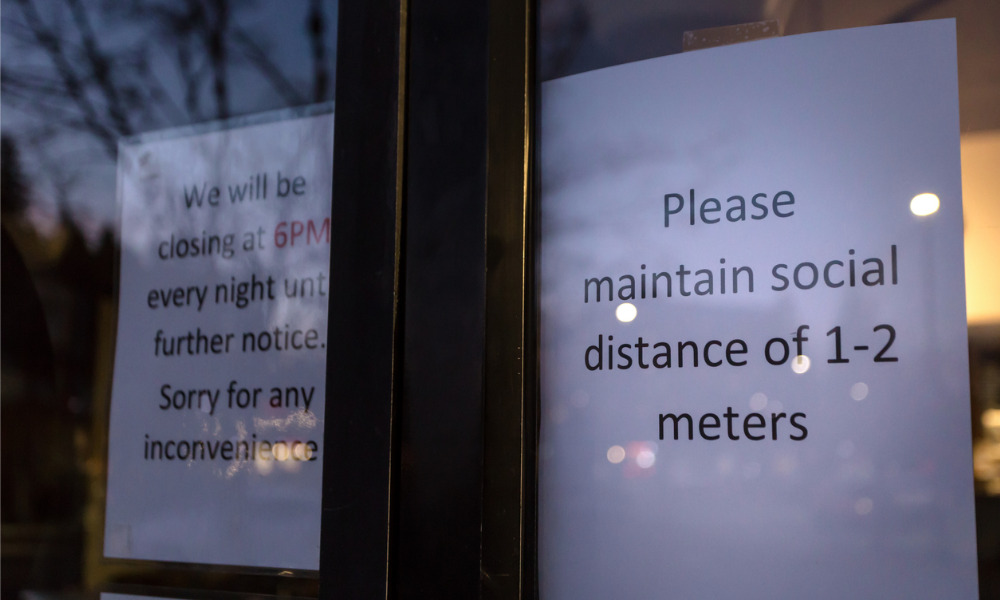Taking tough measures will protect longer-term damage to major economies says organization's secretary-general

Even with a range of emergency measures taken by the Canadian and provincial governments and the Bank of Canada, individuals and businesses will suffer financially from the COVID-19 outbreak.
But the OECD says that without the tough measures that are shuttering businesses and keeping people in their homes, the coronavirus pandemic would cause far worse damage to major economies, both from a human and financial point of view.
“The high costs that public health measures are imposing today are necessary to avoid much more tragic consequences and even worse impact on our economies tomorrow,” said secretary-general Angel Gurría “Millions of deaths and collapsed health care systems will decimate us financially and as a society, so slowing this epidemic and saving human lives must be governments’ first priority.”
Gurría’s comments ahead of the G7 virtual conference included the OECD’s latest reading of the economic impact of the virus crisis, with “significant short-term declines in GDP for major economies.”
That loss could be as much as one third of GDP with each month of containment reducing GDP by two percentage points. Recession is inevitable for many major economies.
“Our analysis further underpins the need for sharper action to absorb the shock, and a more coordinated response by governments to maintain a lifeline to people and a private sector that will emerge in a very fragile state when the health crisis is past,” added Gurría.
Much of the impact will be felt in tourism, retail and wholesale trade, and the real estate sector. Tourism alone could take a global GDP hit of 45%, rising to 70% if the outbreak is not in control by September.
At the start of the month, the OECD called the COVID-19 pandemic the “gravest threat” to the global economy since the financial crisis more than a decade ago.
However, the outcome of the crisis depends on the scale and duration of the pandemic, how much spending on goods and services declines in less-impacted parts of the economy, and the speed at which governments’ fiscal and monetary support takes effect.
Canada to suffer less than some
Among major economies, Germany and Spain are expected to see the among the largest impact on GDP according to current OECD estimates. Both will see GDP cut by almost 30%.
The US is expected to see a reduction of more than 25% while Canada fares slightly better at around 23%.
China and India are among the economies set for GDP reduction of less than 20%.
It should be noted though that, although Canada is not expected to be among the worst affected during the containment months, the oil sector is likely see longer-term impact due to reduced global commodity demand.
In advance of #G20 discussions, Secretary-General @A_Gurria unveiled the latest OECD economic estimates:
— OECD ➡️ Better policies for better lives (@OECD) March 27, 2020
For each month of #COVID19 containment, there will be a loss of 2 percentage points in annual GDP growth.
Read the full statement ➡️ https://t.co/G1YHX7Ic86 #coronavirus pic.twitter.com/QBrjfEKgSS



